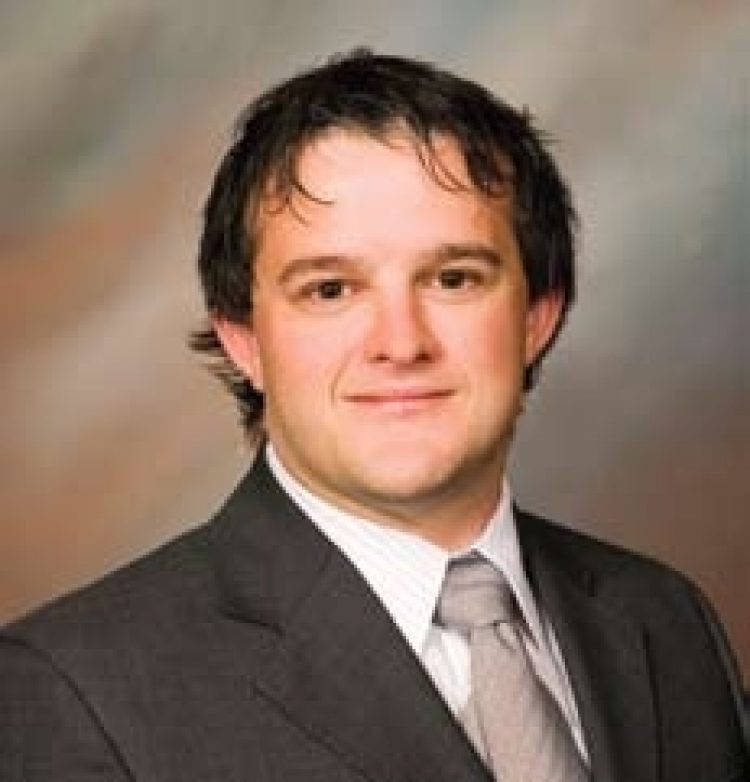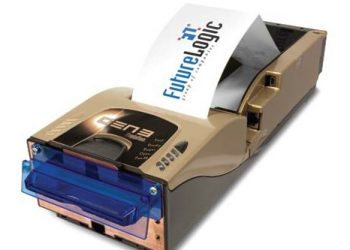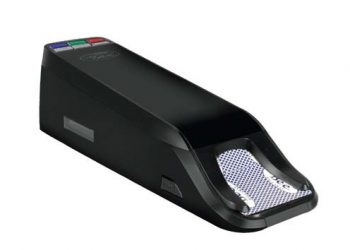Gaming Laboratories International Asia is seeing ever-greater levels of interoperability between gaming software and hardware
The push for increased interoperability between casino gaming equipment developed by different manufacturers is creating new business opportunities for gaming test laboratories. Ian Hughes, Managing Director – Gaming Laboratories International Asia, spoke to Inside Asian Gaming during G2E in Las Vegas to explain how the company is helping move this exciting industry development forward and how GLI is expanding in Asia.
Inside Asian Gaming: Can you give us an update on your business in Asia Pacific following GLI’s acquisition of Technical Systems Testing (TST) earlier this year?
Ian Hughes: Everybody that was working for TST both in the Philippines and in Hong Kong now works for GLI Asia. Our Macau office has doubled in size and continues to be a great base for our Asian manufacturers.
The suppliers based out of Taiwan and Korea are looking to sell product not only to traditional large Asian markets like Macau, but also markets like Central and South America. They really have a global focus in terms of what they’re doing out of Asia.
GLI Asia is able to help these Asian regional manufacturers. Quite often we try and test close to where the content is developed, to have a close relationship with the R&D team. If there are any issues to discuss, it’s easier to consult with the manufacturer in their own time zone and language. The manufacturer has a lot of say in terms of where they would like things to be tested and evaluated. Of course, we can’t always do that. We have certain restrictions, particularly in some jurisdictions in the United States where we may not be allowed to test a particular type of product. But that’s changing in the US.
We are doing a lot of testing for online in the Macau office now. Before, we weren’t doing that. So with that TST acquisition came some expertise, and they were able to continue that with the online gaming, and also transfer some of that over, which has contributed to our growth in Macau. About 30% to 40% of our work in Macau is testing of online gaming products.
A number of traditional slot manufacturers are talking about or actively pursuing development of game content for use online. What impact has this had on GLI’s role?
What we’re noticing is a real convergence of technology, where we test a gaming machine for a land-based casino and it’s about game content, but the manufacturers are developing that content for multiple platforms whether it be for online, for applications on say the iPad or for smartphone gaming. Our strategy and approach to the testing is pretty much the same. The game has to play in accordance with its rules, regardless of whether it’s online or terrestrial. It’s not a big step in terms of testing an online game to testing a terrestrial game. The support platform may be different. Sometimes when we’re testing a game we find we’re getting it early in the design cycle. And we know it could be going into an online platform 12 months later. We might be testing it today for a casino now, but a few months down the line we may be asked to test it for say an iPad application or an online game application.
What’s happening in the Singapore regulatory sector?
As you know, the CRA [Singapore’s Casino Regulatory Authority] must approve each test location used to test gaming equipment for the Singapore market. GLI has all its test locations in the United States approved, our locations [are] approved in Europe and we’re currently in the process of having our centre approved in Australia. So even though GLI is an approved SRTL—Singapore Recognised Test Laboratory—we can only do test procedures in those of our locations that have been CRA-approved. We are, however, adding more locations all the time.
How are you positioning yourself for the expected slot regulations in the Macau market?
We work very closely with regulators all around the world when they’re introducing their regulations. Regulators recognize the expertise GLI has in writing technical standards. We’re very fortunate that they engage us very early and provide us with drafts of the technical standards. We’re typically invited to comment on those technical standards. In some cases we write it [technical standards] under contract to the government involved.
We talk to the regulator about what their objectives are, what their concerns are. GLI doesn’t set policy—it merely ensures that policy is reflected in the way the regulator wishes in terms of technical requirements. For example, when technical standards are published, there may be some wording that is open to interpretation. So we try to work with them [the jurisdiction] to narrow that room for interpretation. If something’s not clear, the last thing we want is for the regulator to understand it to mean one thing, the manufacturer to understand it to be something else, and the test lab something else again. That just creates a huge cost, because the manufacturer will build a product believing it’s conforming to the criteria, and then the test lab looks at it and says, ‘No that’s not the regulation’s intent’. So GLI’s first task is to look through the technical standards and understand if there’s anything at all that’s open to interpretation.
We help the regulator dig deep into the text and the definitions of particular words—sometimes suggesting alternatives or seeking clarification on what they understood by a particular word or phrase. We can also use our experience and expertise to show them what other jurisdictions have done to resolve a particular issue or question of interpretation.
What happens if the regulator wants some regulation unique to that jurisdiction?
If there’s anything we believe is significantly out of step with the rest of the world—if there’s a unique requirement in there, we provide the regulator with an impact assessment. That sets out the potential downside as well as potential advantages of framing a regulation in a particular way. We say to the regulator: ‘It’s your prerogative to do it that particular way, but we would like you to consider the following impact or impacts that may have’. Then they may or may not amend it. Our concern is simply to make sure they have a well-informed decision.
Is technology cooperation and research cooperation between original equipment manufacturers and the creation of open communication standards overseen by the Gaming Standards Association (GSA) creating opportunities for GLI?
Yes. As systems become more complex, and we’re getting G2S [the GSA’s Game to System] and S2S [the GSA’s System to System] interfaces, operators are really pushing in that direction. An operator might say, ‘I want this system and I want this G2S implementation from two different vendors. And I want you two to sit down and work together on it, because that’s what I want and I’m buying the system’.
More and more, we are seeing operators having a direct say in which company is selected for the testing process, because as they see it, ultimately, it is in their best interest to ensure devices and systems operate correctly when they are live on the floor. Operators are telling us they are choosing GLI because of our independence and expertise.
As we start to get more complexity and interoperability, this is going to become an issue more and more. You might be surprised to learn it’s often being driven by the customer—the purchaser—of that system rather than the manufacturer saying ‘I want to make sure I work with “X” piece of equipment from another supplier’. That element is still there as well—particularly from the gaming device manufacturer’s side.
There are eight or nine major online suppliers, and as new suppliers enter the market, they want to ensure their products work with all of the major systems. They turn to GLI and ask, “Can you hook my machine up with all these major systems and make sure it communicates correctly?”
That’s much better than putting it straight on the floor of a casino and finding it doesn’t work—especially if the manufacturer is new to the market. Because if it’s a six-machine placement on a casino floor and it doesn’t work, then that’s a dead spot on the floor. The casino operator has very little patience for that. If machines are not working they are either off the floor very quickly or they’ll need a software update. If the manufacturer can’t get a software update to the casino quickly enough then the machines may be pulled [off the floor]. Whereas if that equipment goes through a lab and everything’s ironed out beforehand, they don’t have that pressure of live games on a casino floor. It can be adjusted in a test bed environment. We’re seeing a lot of that interoperability testing, and that’s going to become more and more complex with convergence of technologies and multiple platforms for content.
There’s talk of new wide area jackpots being introduced into the Macau market to drive slot revenue growth and to create ‘life changing’ jackpots. What’s GLI’s role in testing such technologies?
Generally, regulators see progressive jackpots as a core part of the game functionality and a core part of their responsibilities as a regulator to make sure the jackpots operate correctly. It’s not uncommon in some markets, for example, to have jackpots over US$1 million. So the potential for something going wrong is there. It can become a big problem very quickly. Issues such as fairness about players not being eligible to win jackpots and how jackpots are disbursed when they’re decommissioned creates a whole load of new requirements, but nothing that other jurisdictions haven’t gone through. So we certify and test many controls and jackpot formats.
What about jackpots between properties owned by the same operator?
From a technology point of view, running jackpots or any gaming networks between properties is the same infrastructure generally as running them within one property. Everything’s running on the same sort of topography—the same routers and servers. All the technology that connects sites together—whether it’s in the next room or miles down the road—is effectively the same.






























